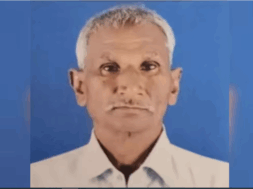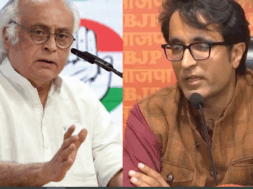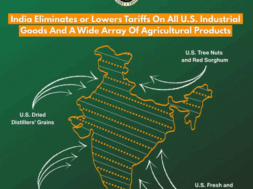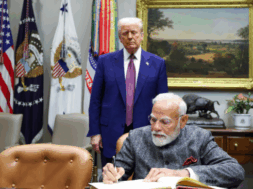NEW DELHI, Sept 20: The Bombay High Court on Friday by a majority of two to one held as unconstitutional and struck down the amended Information Technology Rules which sought to identify fake and false contents on social media against the government.
The matter was assigned to Justice A.S. Chandurkar as ‘tie-breaker judge’, after a division bench had delivered a split verdict in January, this year, on the petitions challenging the amended IT rules. Justice Chandurkar on Friday held that the rules violated the constitutional provisions.
“I have considered the matter extensively. The impugned rules are violative of Article 14 (right to equality), 19 (freedom of speech and expression) and 19(1)(g) (freedom and right to profession) of the Constitution of India,” the judge said. The expression “fake, false and misleading” in the Rules was “vague and hence wrong” in the absence of any definition, he added.
With this ruling, the High Court allowed the petitions filed by stand-up comedian Kunal Kamra and others challenging the new rules, including the provision to set up a Fact Checking Unit (FCU) to identify fake or false content about the government.
The petitions against the IT Rules were referred to Justice Chandurkar after a division bench of Justices Gautam Patel and Neela Gokhale delivered a split verdict in January. While Justice Patel struck down the Rules, Justice Gokhale upheld them.
Justice Patel had said the Rules amounted to censorship, but Justice Gokhale had opined they did not have any `chilling effect’ on free speech as argued. Justice Chandurkar on Friday said he agreed with the opinion given by Justice Patel (now retired).
On April 6, 2023, the Union government promulgated amendments to the Information Technology (Intermediary Guidelines and Digital Media Ethics Code) Rules, 2021, including a provision for an FCU to flag fake, false or misleading online content related to the government. Under the IT Rules, if the FCU comes across any posts that are fake, false, and contain misleading facts about the business of the government, it would flag the same to social media intermediaries.
Once such a post is flagged, the intermediary has the option of either taking down the post or putting a disclaimer on the same. In taking the second option, the intermediary loses its safe harbour/immunity and stands liable for legal action.
(Manas Dasgupta)












